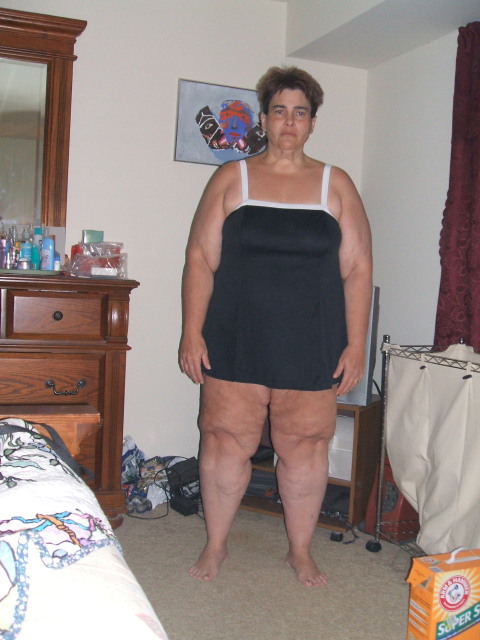non healing, recurrent ulcer
Question
QUESTION: I had RnY in december 2002. In June 2005, I had a perforation secondary to aspirin and steroids used for infertility. I had a surgical repair. Since then , I have been developing ulcers at the same spot.
I had a resection last June and all seemed to go well.
In November, I started having pain again, much like the previous ulcer pain.
Since then, I've had multiple EGD's, tried every PPI available and have failed them miserably. About a month ago, I had an EGD that showed a very large, deep ulcer. I also had a pH study that showed that my pH was rarely over 2 and on PPI's it lived at around 4. At that time, I was put on Prevacid solutabs 30 mg TID, carafate and tums. I was unable to tolerate such a large dose of PPI and was having hypertension and arrythmias. So I was cut back down to zantac 300mg tid. Although it did not cause any side effects, it also did not help relieve my pain and vomiting. I have also been on a full fluid diet since November.
I had a Bravo capsule placed since the results of the probe study were so poor, they felt that there may have been displacement.
The Bravo capsule was placed at the anatomosis site itself and not in the esophagus. This proved that the pH probe was in fact accurate. Since I had failed all the available PO PPI's, we decided that perhaps I was just unable to absorb the medication PO.
So about a week and a half ago, I had a PICC line inserted and I started on Protonix 80mg IV bolus every night followed by an infusion of 8mg/hour over 12 hours. We also added cytotec 200 mg qid. I actually felt much better on that medication. I was less nauseous, I was not vomiting and I had little to no pain. On day 6 of therapy, I began feeling heart palpitations, dizziness and sweatiness. Since I was at work, they took me to the ER. My blood pressure was 170's over 110, I was tachycardic at 130's with unifocal PVCS. EKG was normal and my troponins were negative. Once I was cleared on the cardiac front, GI went back to the drawing board.
I had another EGD on Wednesday with another bravo capsule placed. The EGD showed that the ulcer was evolving. Although it was larger than the previous one, I appeared more shallow and showed signs of healing. It was yellow now, no longer that angry red. the bravo study showed that while I was on PPI infusion, my pH was usually around 4-5 and when I was off, it was around 2.
So, Thursday, we changed the infusion to 8mg/hour continuous.
Unfortunately, I don't feel that I am tolerating the medication well again. Also, I am very concerned that although this therapy does work to heal the ulcer, nobody can give me an answer as to how to prevent the reformation of the ulcer. This ulcer formed less than 5 months after my resection.
In speaking to GI, it seems that one of the next options is to have a highly selective vagotomy. Although the thought of having another surgery is not something that makes me happy, I can't go on feeling this unwell, not eating and having a PICC line infusing therapy 24 hours a day.
I would be very interested in hearing your input on this matter.
Thank you for your help
ANSWER: Annamaria,
I am really impressed with the difficulty of your problem, and I am also impressed with the creative efforts of your doctors to treat this problem. You have done a nice job of summarizing pertinent data - you must be either a medical professional or quite intelligent and detail oriented.
In theory, your tiny stomach pouch after gastric bypass should not have that amount of acid being secreted, and the pH should not be that low in the face of the most basic medical therapy, not to mention the advanced infusion therapy that has been attempted in your case. I have several thoughts that might be useful, which can be grouped into two categories. First, why does your pouch have so much acid and is there anything else that can be done to reduce that acid? Second, if we must accept the presence of that acid, is there anything that can enable your tissues to tolerate it?
1) You and your team should consider the possible presence of a 'gastrinoma.' I'm sure you will be able to learn about this, if you don't already know what it is. Diagnosis may be a bit difficult since testing for blood levels should usually be done only when the patient is off all acid blocking meds, and I suspect that is not an option for you. Good news is that CT scan and MRI are becoming more sensitive all the time, and there is a good chance that a gastrinoma could be visualized with a focused study and an attentive radiologist. If the imaging is negative, then this possibility could be left alone.
2) Perhaps your gastric pouch is too large? I'm guessing this is actually not the case, especially following your 2005 revision. Nevertheless it is a question that must be asked - your pouch should include no gastric fundus and should only be 1-2 cm long when measured from the junction of the esophagus and the stomach. Your GI doc can help with this assessment using Upper GI X-ray or information from the Upper scopes that have been done with your ulcer assessments. If the pouch is too large it may include mucosa (lining) that secretes acid and it is potentially beneficial to remove that "extra" pouch tissue. Surgically, this would be challenging and risky so there would have to be a high level of certainty about the benefits.
3) Might there be a fistula (connection) between your lower/larger stomach and your stomach pouch? If so, then acid from your larger bypassed stomach will trickle back into your pouch. I would be surprised if you have a fistula that was not diagnosed around the time of your 2005 revision, but the possibility should be considered. The best way to diagnose a fistula is using CT scan with oral contrast - if any of the contrast shows up in the distal bypassed large stomach, there is almost certainly a fistula.
4) At the time of your 2002 gastric bypass or the 2005 revision, did the surgeon remove the fundus and body of your distal bypassed stomach? If so, you may have a condition called "retained antrum," that causes overstimulation of any remaining acid producing cells that you have. There is no test I know of that will "nail" this diagnosis, but the correct anatomy along with elevated gastrin levels (and no gastrinoma) would suggest this is true. Choosing the right therapy for this condition (if present) is tricky - removing the antrum might take care of the problem but it would make it impossible to revise to a Sleeve (see below).
5) Highly selective vagotomy seems like a reasonable idea because it may be helpful and it does not prevent either of the remaining surgical options below.
If the cause of the abnormally elevated acid levels cannot be identified or treated, then we must fall back to "How best to tolerate the acid?" Continuing along the same course is apparently not going to permit you to continue forward in a healthy manner, so there are two remaining options that I may propose.
5) Reverse the gastric bypass - although you did not specify the exact location of the ulcer, I suspect it is actually on the jejunum (not the stomach) adjacent to the anastomosis (connection of the pouch to the Roux limb). Since stomach tissue is naturally tolerant to acid, changing you back to "normal" anatomy has a good chance of eliminating the ulcer problem. Clearly, this would be a last resort since it would be surgically challenging (risky) and would almost guarantee substantial weight regain for you over time.
6) Revise the gastric bypass to a Sleeve - this is not commonly done, but is actually not as difficult as the revision surgery you have already had done. The rationale would be to expose only stomach tissue to the acid environment that you apparently carry in your body, while still helping you avoid weight regain.
My best wishes to you and your physicians,
Dr JP
One more small thought - you did not mention carafate elixir among your medicines. I bet this is already in use for you, but if not I think you will find that it provides a significant coating and soothing effect for the ulcer while the primary plan is being worked out.
---------- FOLLOW-UP ----------
QUESTION: Thank you so much for your prompt reply.
I am, in fact, the assistant nurse manager in an Endoscopy Suite. I have also been blessed with working with friends that are incredible gastroenterologists. They are taking this case personally and thinking outside the box.
After my revision in June, I did have a GI series and it ruled out a fistula. My gastrin level was negative and they have ruled out gastrinoma and h-pylori mucosal, serum and stool were all negative as well. Carafate has been a staple in my diet since November.
As I said, I am on Prontonix via PICC line at a continuous rate of 8mg/hour. The ulcer is healing. I had an endoscopy this week that showed the ulcer is evolving. Bigger but not nearly as deep. I also had two Bravo capsule studies (the capsule was actually attached in the pouch as opposed to the esophagus) and it showed that without PPI's my pH lives just under 2 at best. With the PPI, I can get as high as 4. I must be absorbing the med since I am having the palpitations and hypertension.
Thank you once again for your input. I will be sharing it with my GI team.
If you have any further input or want a follow up, please feel free to contact me
Thank you.
Anna Maria
It sounded like you are receiving excellent care, so I'm not surprised that many of my thoughts have already been addressed. In that spirit, I trust that your GI docs will take my suggestions and apply them (or not) in a way that is clinically appropriate for you.
Best of luck!
Dr JP
- Prev:H Pylori before bariatric surgery
- Next:ercp
Related Articles
-
medicaid and gastric bypass
Questionok im 30 and a mother of 4 i weight 266 lbs and am 5ft 2i
-
Alcohol Cnsumption
QuestionQUESTION: Dear Dr. Jaques, I had one glass of wine and wh
-
Issues with Lapband
QuestionHi Dr. Pilcher, I have a bit of a lengthy story, so here
-
VSG pain when swallowing
QuestionHi Karla! I had the VSG on the 6th of july (9 days ago) a
-
GBS AND ACID REFLUX
QuestionI had Gbs w/r-y, I have had acid reflux severely and when
-
hair loss post bypass
QuestionIn april of this year I had a gastric bypass now my hair
- DON'T MISS
- Type of Gastric Bypass Surgery
- am I eligible
- Pain
- After Sleeve, have pain when I swallow food? Like it is stuck in throat or tube to stomic??
- What I need to be approved by OHIP
- Finding a Bariatric Surgeon for VG (Sleeve)
- Gastric bypass
- Regular Bowel Movements
- tooth health post RNY
- Regarding the lapband
More Great Links

